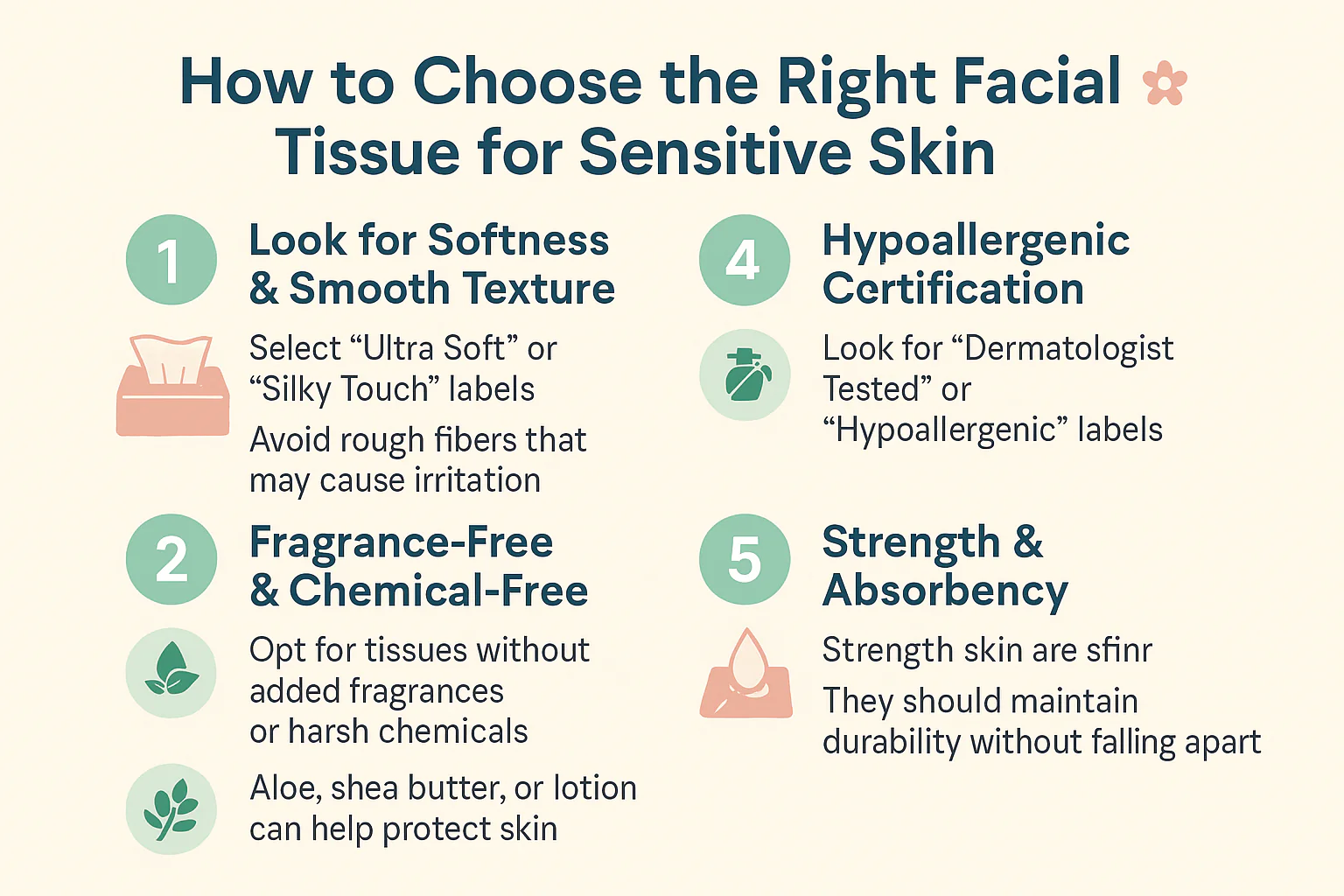How to Choose the Right Facial Tissue for Sensitive Skin?
If your skin gets red or itchy after using regular tissues, you’re not imagining it. The wrong facial tissue can hurt sensitive skin — but the right one can protect it.
The best facial tissues for sensitive skin in 2025 are ultra-soft, fragrance-free, and free from harsh chemicals. Look for “hypoallergenic” labels, lotion-free formulas, and trusted brands like Kleenex Ultra Soft, Puffs, and Caboo.
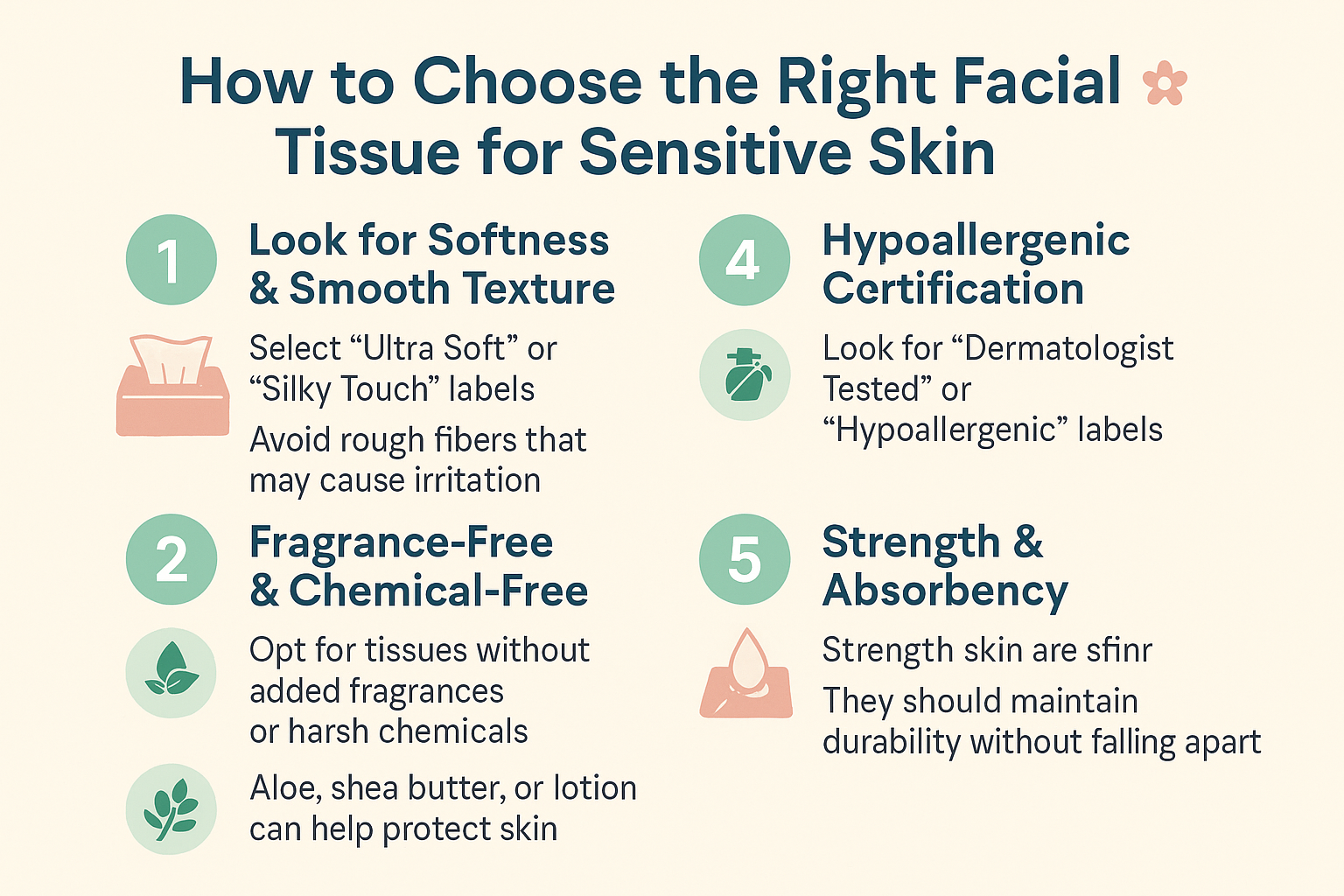
I’ve tried dozens of tissue brands over the years. Here’s how I finally found ones that don’t irritate my skin — and how you can too.
What is the best facial tissue 2025?
Finding the “best” facial tissue is personal. What works for one person might irritate someone else. But in 2025, certain brands stand out for sensitive skin.
Scotties Ultra Soft, Kleenex Ultra Soft, and EcoSoul bamboo tissues were voted top choices in 2025 for softness, safety, and performance on delicate skin.
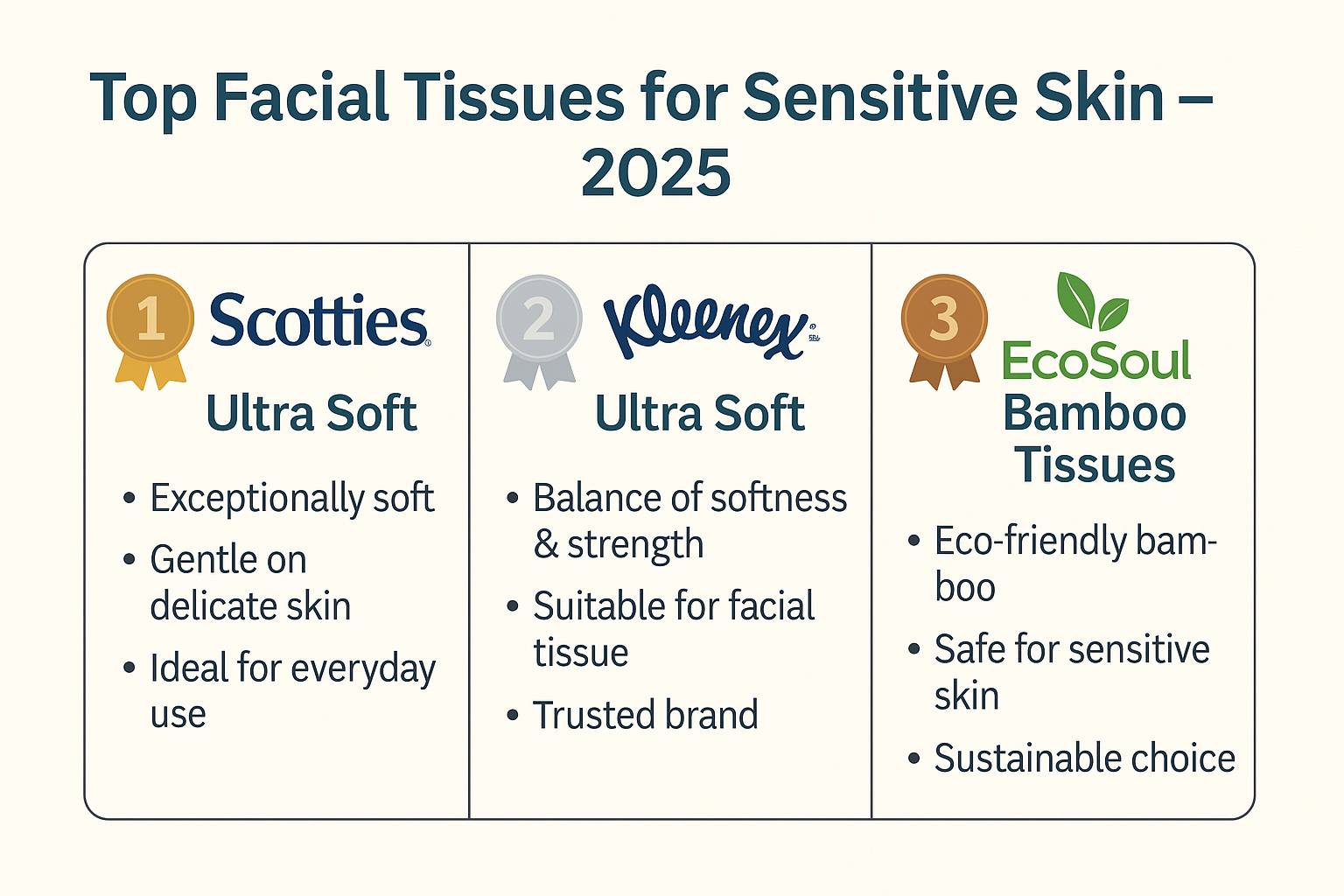
I started trying different tissues after my skin flared up during allergy season. Every time I wiped my nose, it stung. That’s when I switched from store brands to Scotties Ultra Soft. I noticed the difference right away — no more red patches.
Consumer Reports tested popular brands like Kirkland, Puffs, and Kleenex. They rated them based on strength, softness, and how gentle they are on skin. Scotties Ultra Soft topped the list for 2025. Kleenex Ultra Soft followed closely, and both held up during cold season without leaving lint or causing skin burns.
EcoSoul and Caboo were praised for being hypoallergenic and eco-friendly. They use bamboo pulp, which is softer and has fewer chemicals than recycled paper. I tried EcoSoul’s tissues for a week and liked how smooth they felt. No perfume, no itching.
If you have sensitive skin, these are a safe place to start. They’re tested, reviewed, and widely available online and in stores.
What are the best facial tissues according to Consumer Reports?
Sometimes marketing claims are just that — claims. That’s why I like looking at independent reviews. Consumer Reports did lab tests on 10 facial tissue brands in 2024–2025, and their findings helped me narrow my options.
Kleenex Ultra Soft, Caboo Tree-Free, and Puffs Plus Lotion scored highest in softness and lowest in skin irritation risk.
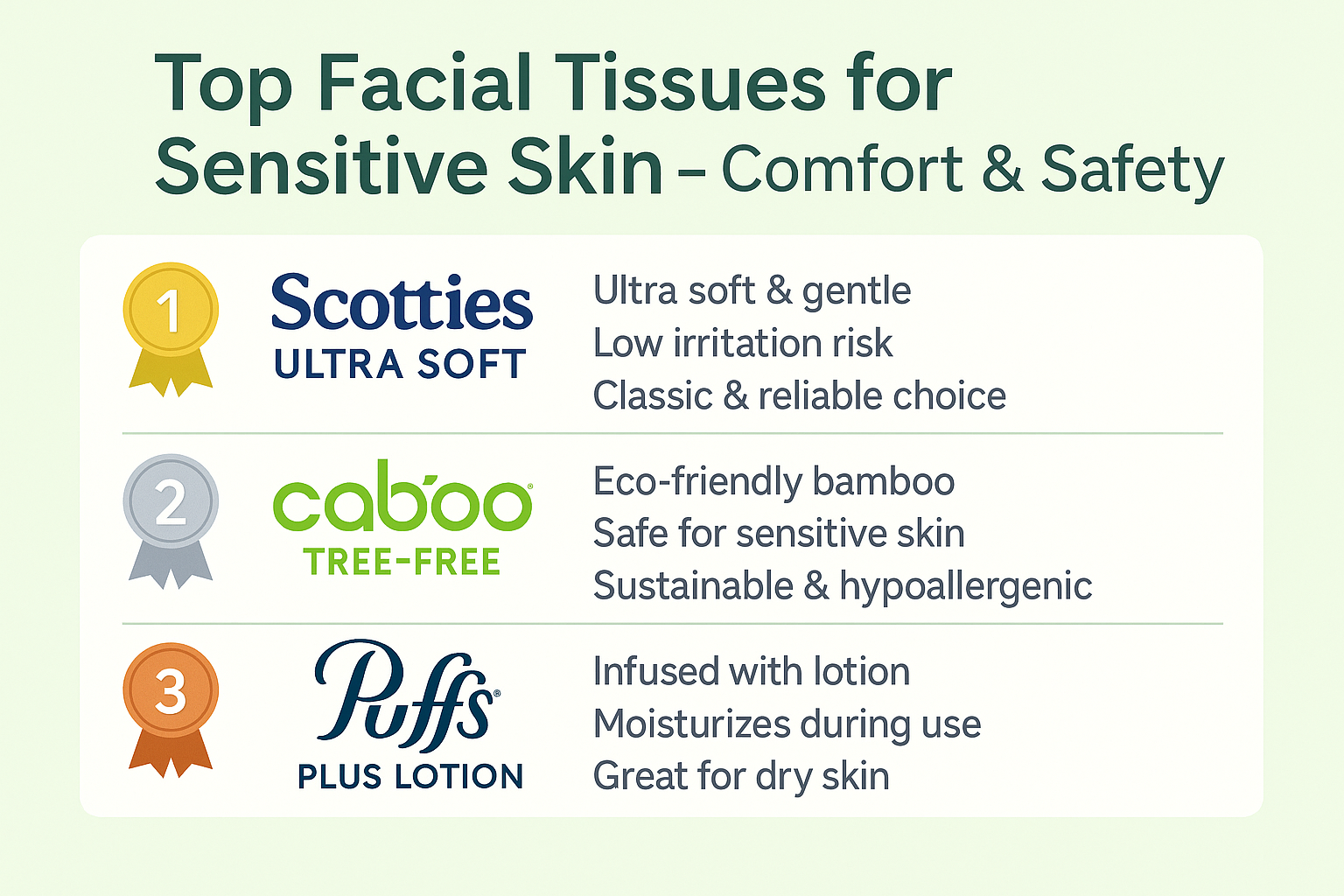
These tests didn’t just look at texture. They checked if the tissues left lint, if they tore too easily, and whether they caused redness after use. That’s where Caboo stood out — it uses bamboo pulp and has no added fragrances or dyes. I bought a box after reading the review, and it felt like cotton. No scratchiness, no drying effect.
Kleenex Ultra Soft came out on top for comfort. It’s thick but not rough. I used it during a recent cold, and my skin stayed smooth — even after blowing my nose all day.
Puffs Plus Lotion is another good option, but not for everyone. Some people react to the lotion inside. If you’ve had issues with breakouts or clogged pores, I’d skip this one. I personally like it in winter when my skin is dry, but I use it carefully.
Consumer Reports also warned against certain budget brands that use harsh chemicals or recycled content with unknown additives. If you have eczema or rosacea, that’s something to watch out for.
Which tissue is best for the face?
Choosing the best tissue for your face isn’t just about comfort. It’s about protecting your skin from things you can’t see — like chemicals, fragrance, and residue from recycled fibers.
The best tissues for the face are soft, fragrance-free, lotion-free, and made from virgin or bamboo pulp to avoid irritation.
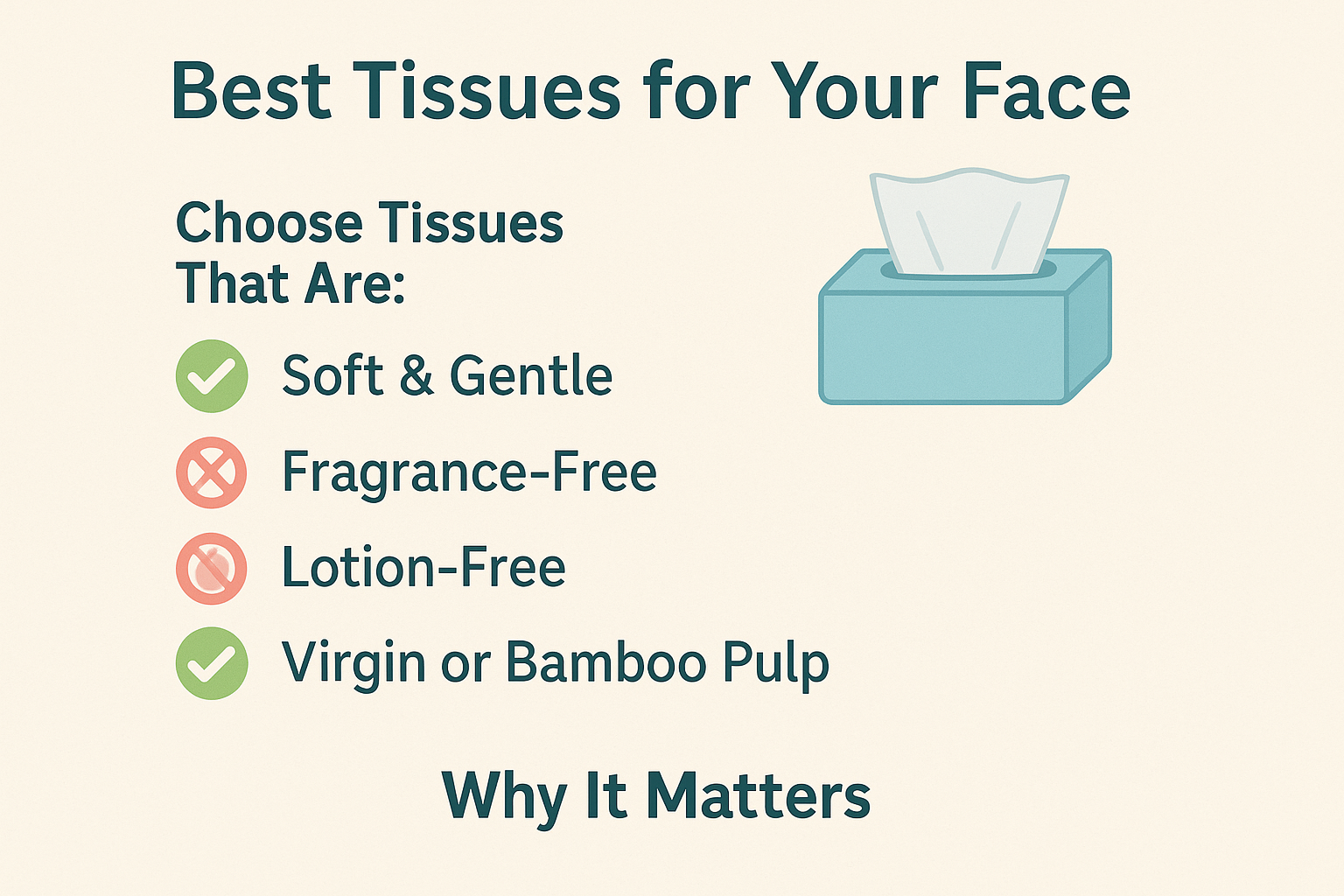
I used to buy whatever was on sale. Then I noticed my cheeks got blotchy every winter. At first, I blamed my moisturizer. But it turned out to be the tissue I used. It had perfume and whitening agents that dried out my skin.
Since then, I’ve been checking labels. If it says “hypoallergenic,” that’s a good start. If it says “fragrance-free” and “dermatologist-tested,” even better. I avoid anything with added lotion unless it clearly lists ingredients.
Here’s what I look for now:
- No scent or “fresh fragrance”
- No added dyes or colors
- Made from bamboo, virgin pulp, or non-GMO materials
- No bleach or harsh whiteners
- 3-ply softness without being too thick
I tried a new tissue this year from a smaller brand that focused on clean ingredients. The difference was clear. My skin stayed balanced even during allergy season.
One tip: if a tissue feels stiff or squeaky when you rub it, it’s not good for sensitive skin. Trust your fingertips. They can tell you more than the label sometimes.
Conclusion
If you have sensitive skin, the right facial tissue matters. Choose soft, scent-free, and tested options like Scotties, Kleenex Ultra Soft, or bamboo-based brands — your skin will feel the difference.
Share this article
About the Author

You might also like
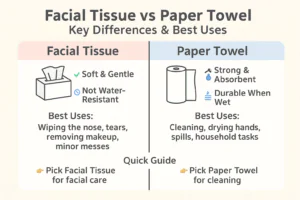
Facial Tissue vs Paper Towel: Key Differences and Best Uses?
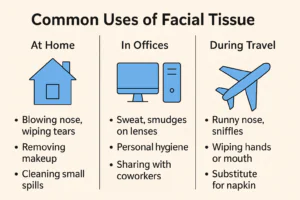
Common Uses of Facial Tissue in Homes, Offices, and Travel?

The History of Facial Tissue: From Invention to Everyday Use?

What Is Facial Tissue and How Is It Different From Toilet Paper?

How to Reduce Costs Without Compromising Softness in Facial Tissue Procurement?

Is Bamboo Pulp a Better Option for Soft Facial Tissue Buyers?

What Packaging Options Are Available for Soft Facial Tissues in the Food Service Industry?

Why Is Softness the Top Priority in Facial Tissue Selection?
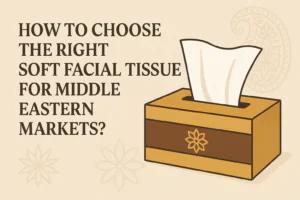
How to Choose the Right Soft Facial Tissue for Middle Eastern Markets?

